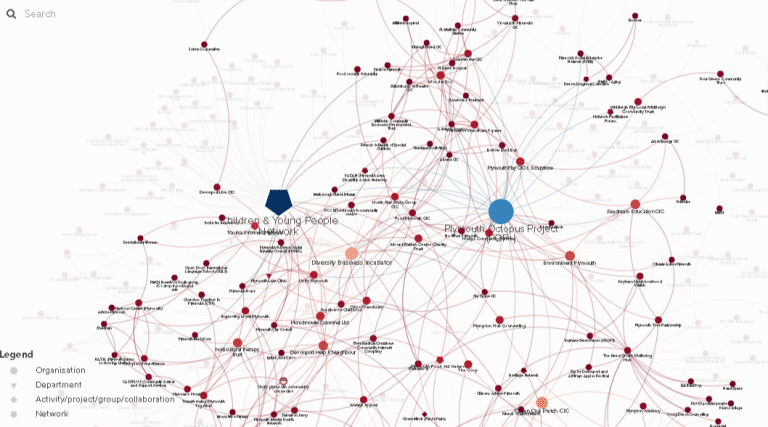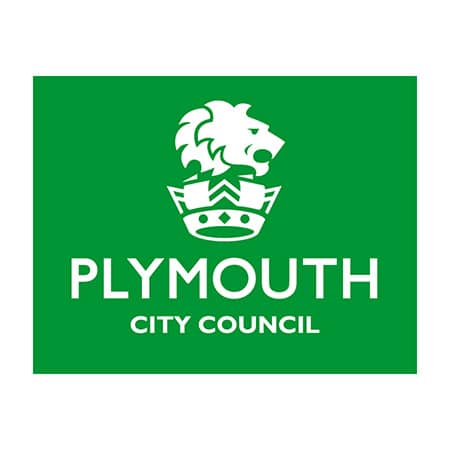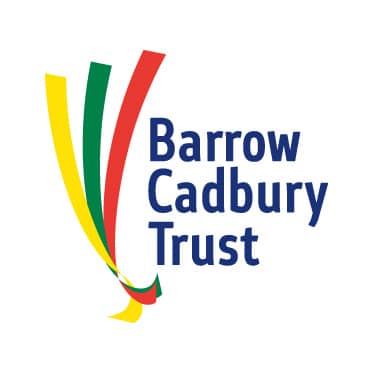Recently we’ve taken time to reflect on where we are in Plymouth and POP with regards networks. One of the great challenges is knowing how to spot the value of networks – much of the benefit are tiny connections and actions people take so 1. the network connector does not know what they don’t know and 2. even if you did you don’t know what would have happened if that connection was never made or whether the connection would have been made anyway. Because of this we tend to look for the bigger wins – the policy shifts, the strategic influence and large scale collaborations and unfortunately given the inherent unpredictability and the timescales (trust and relationship building) involved these can be quite small in number. And leaves a question – if these big wins don’t exist has the process of network building been in vain or without value?
So, given this challenge, given that we haven’t looked at our practice for a few years and given we have had a growth and shift in the team we decided a quick session would be useful. So myself and two colleagues, Stuart and Karen met.
We talked about what makes networks successful, what makes a good network, and the benefits we have seen and we thought about the best network we know – and why it was successful. We then reversed the conversation. We tried to imagine the most unwanted result – TRIZ Liberating Structures – 6. TRIZ. Our most unwanted result was:
Our most unwanted result: everyone works in isolation, unconnected and duplicating. The few control it all and to influence progress people need to be as powerful as possible.
We then talked about what we would need to do to make this happen. Here’s what we came up with – the actions and the things we would need to do to achieve the above:
- Only work out of self interest
- Only listen to people you know – don’t invite challenge
- Be protective
- Enter into competition to get lowest prices – privatise
- Be secretive
- Believe in bigger is better
- Enter into lobbying for your organisation – only connect with formal power
- Don’t let people know your contacts
- Keep vested interests
- Stop consultation
- Stop community engagement
- Democratic power
- Reduce elections to every 15 years
- Have a tightly controlled council
- Pick a leader and boost them up – needs to be a white man.
- Convince people are dangerous, not capable and too stupid to contribute.
And do you know what? THIS IS THE STATUS QUO!! It shows us how much work we have to do, but how much we can gain if we hone our skills as network builders.
Are networks, by their very nature, a challenge to the status quo?
We then went through a few more steps and created a list of minimum specifications for a network:
- Open, clear and attractive invitations
- Developing and releasing capacity to drive networks
- Creating consciously safe spaces
- Effective use of multiple communication methods
We then had an interesting side conversation about community vs networks. What is the difference? The difference we decided was the strength of personal relationships the existed in them:
- One is a structures where loose connections exist. It allows freedom of connection between people. It allows others to ‘lurk’, hang on and sit on the fringes, waiting for the right invitation to connect them into action and relationship.
- The other is a structures that has much deeper relationships. Trust, shared values and personal connection characterise this structure. They are the engines of action, they provide the drive to the wider [community/network] to grow, evolve and adapt.
We just couldn’t decide which word belonged to the definitions.
So watch this space as we develop our own practice and our offer of support going forward.







